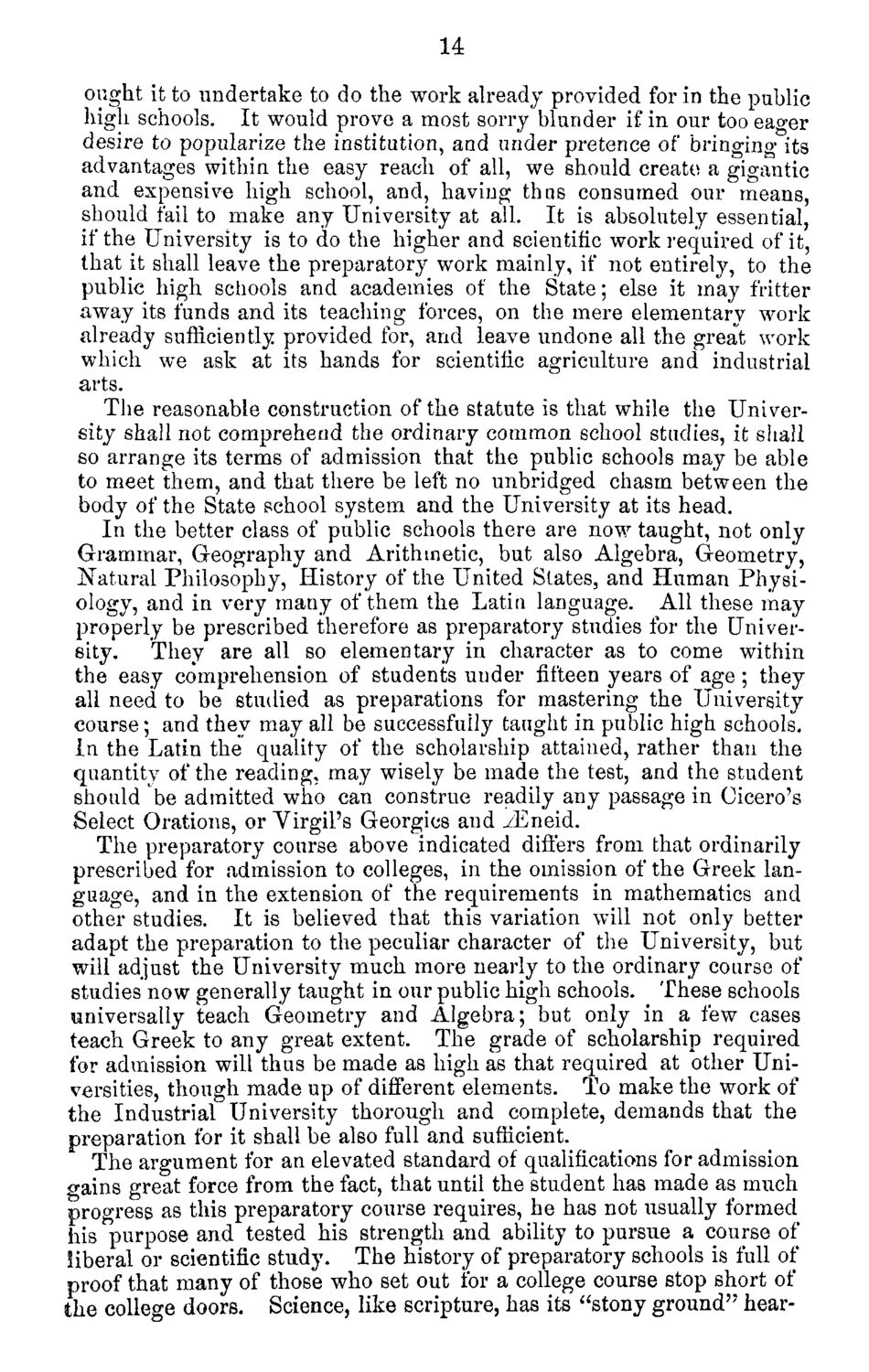| |
| |
Caption: Course Catalog - 1867
This is a reduced-resolution page image for fast online browsing.

EXTRACTED TEXT FROM PAGE:
14 ought it to undertake to do the work already provided for in the public high schools. It would prove a most sorry blunder if in our too eager desire to popularize the institution, and under pretence of bringing its advantages within the easy reach of all, we should create a gigantic and expensive high school, and, having thus consumed our means, should fail to make any University at all. It is absolutely essential, if the University is to do the higher and scientific work required of it, that it shall leave the preparatory work mainly, if not entirely, to the public high schools and academies of the State; else it may fritter away its funds and its teaching forces, on the mere elementary work already sufficiently provided for, and leave undone all the great work which we ask at its hands for scientific agriculture and industrial arts. The reasonable construction of the statute is that while the University shall not comprehend the ordinary common school studies, it shall so arrange its terms of admission that the public schools may be able to meet them, and that there be left no unbridged chasm between the body of the State school system and the University at its head. In the better class of public schools there are now taught, not only Grammar, Geography and Arithmetic, but also Algebra, Geometry, Natural Philosophy, History of the United States, and Human Physiology, and in very many of them the Latin language. All these may properly be prescribed therefore as preparatory studies for the University. They are all so elementary in character as to come within the easy comprehension of students under fifteen years of age ; they all need to be studied as preparations for mastering the University course; and they may all be successfully taught in public high schools. In the Latin the quality of the scholarship attained, rather than the quantity of the reading, may wisely be made the test, and the student should be admitted who can construe readily any passage in Cicero's Select Orations, or Virgil's Georgics and yEneid. The preparatory course above indicated differs from that ordinarily prescribed for admission to colleges, in the omission of the Greek language, and in the extension of the requirements in mathematics and other studies. It is believed that this variation will not only better adapt the preparation to the peculiar character of the University, but will adjust the University much more nearly to the ordinary course of studies now generally taught in our public high schools. These schools universally teach Geometry and Algebra; but only in a few cases teach Greek to any great extent. The grade of scholarship required for admission will thus be made as high as that required at other Universities, though made up of different elements. To make the work of the Industrial University thorough and complete, demands that the preparation for it shall be also full and sufficient. The argument for an elevated standard of qualifications for admission gains great force from the fact, that until the student has made as much progress as this preparatory course requires, he has not usually formed his purpose and tested his strength and ability to pursue a course of liberal or scientific study. The history of preparatory schools is full of proof that many of those who set out for a college course stop short of the college doors. Science, like scripture, has its "stony ground" hear-
| |